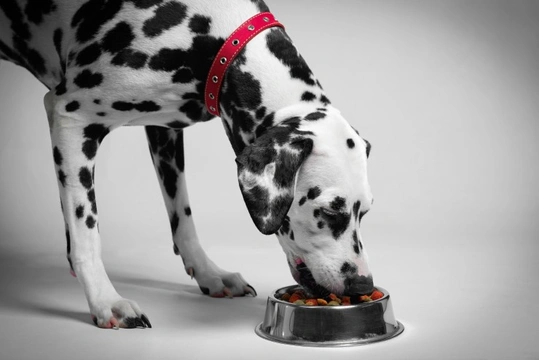
How a prescription diet can help a dog with kidney disease
Dogs of all types have the potential to develop kidney disease or kidney problems, and the chances of a problem arising tend to increase in older dogs with each year that they age. Kidney disease and other problems of the kidneys can come in a wide range of shapes and forms too, with different degrees of severity and different effects on the dog itself.
This means that there are virtually as many different ways of treating, managing or improving compromised kidney function as there are different types of problems, but virtually all approaches include the use of dietary changes and a specialised diet in order to help to support kidney function, and avoid worsening existing damage.
If your dog has a kidney problem or if your vet is concerned about their kidney function, they will talk to you about dietary management and feeding your dog in the best possible way to support their kidneys and general health. You can find out more about the different types of kidney problems that can affect dogs in this article, and here we will look at how a prescription diet can help a dog with kidney disease. Read on to learn more.
How a special diet can help a dog with kidney problems
What you feed to your dog has a direct and often, obvious impact on their health, and feeding an appropriate diet should support health, while a poor or inappropriate diet can worsen it. Long term consumption of a diet that is either low in quality or simply inappropriate for the dog altogether can actually cause or worsen kidney problems, and so for dogs in good health, feeding a good quality and appropriate food should be considered as an investment in your dog’s long term health and wellness.
When your dog has kidney disease or another problem with their kidney, this will reduce the functionality of the kidneys, causing them to be less effective than healthy kidneys. The additional strain that the remaining healthy portions of the kidneys are placed under as a result can in turn lead to the spread of the condition or weakening of the rest of the kidneys too.
Feeding a diet that is directly designed to reduce damage, slow the progression of the disease and place minimal strain on the already compromised kidneys can help to improve your dog’s quality of life, delay the worsening of the condition, and directly extend your dog’s life.
How a kidney-specific diet can help
Feeding a diet that is designed and prescribed to help with kidney problems is usually an integral part of the cohesive approach required to support the health of a dog with a chronic condition, and the nutritional makeup of a kidney-specific diet differs from a mainstream diet in several core areas.
Different types of prescription kidney diets are available in order to give vets and owners the chance to fine-tune the nutritional makeup of the dog’s diet, but the core elements that make kidney-specific diets differ from regular diets are as follows:
- Lower than normal protein content.
- Low salt.
- Low phosphorous.
Combined, this slight variation in the nutritional content of your dog’s food can help to slow down the rate of progression of the disease, and help your dog to remain comfortable for longer.
Protein levels
Getting the protein level right for a dog with kidney problems is often the most challenging thing to undertake-this is because protein produces nitrogen as a waste product when it is digested by the body. Nitrogen is in turn eliminated from the body via the kidneys, placing further pressure on them that compromised kidneys often struggle with.
Lowering the protein levels in the diet reduces nitrogen and so, reduces the workload placed on the kidneys-but protein is a vital component of the dog’s diet, and reducing the protein too much will cause problems in and of itself. Different types of prescription diets will have different percentages of protein, giving dog owners and vets the choice of the most appropriate diet for the dog in question.
Salt levels
Salt or sodium is a necessary food ingredient to help to regulate the body’s moisture balance, and so whilst too much salt is not good for any dog, it is still something that they need in their diets. However, if your dog’s kidney function is compromised, they may not be able to eliminate sodium from the body via the kidneys as effectively as they should, leading to a build-up of sodium in the kidneys that causes further problems such as fluid retention and systemic stress.
Diets designed for dogs with kidney problems tend to have significantly reduced sodium levels as a result.
Phosphorous levels
Phosphorous is an essential trace element that all dogs need, but only in very low quantities. Again, phosphorus is processed and eliminated by the kidneys, and the levels of phosphorus present in a regular diet can lead to a build-up of crystals and minerals in the kidneys, which will again worsen and hasten kidney deterioration.
Can feeding a kidney diet prevent problems?
Prescription diets are designed to support specific health conditions, and are not designed as a preventative measure for healthy dogs. A healthy dog needs a different type of nutrition to dogs with problems, and pre-emptively feeding a prescription diet or otherwise changing the nutritional balance of your dog’s meals is apt to lead to problems, rather than preventing them!



